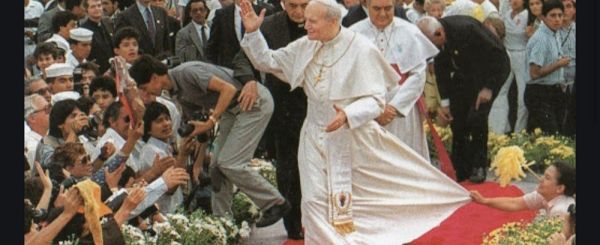3. What does Christ say in this regard in the Gospel we have heard today? At the end of the Sermon on the Mount he said: “Everyone who hears these words of mine and does them will be like a wise man who built his house upon the rock; and the rain fell, and the floods came, and the winds blew and beat upon that house, but it did not fall, because it had been founded upon the rock” (Mt 7:24-25). The opposite of the man who built on the rock is the man who built upon sand. The house he built could not stand. Faced with trials and difficulties, it fell. This is what Christ teaches us.
A house built upon rock. The building that is one’s life. How should it be built so that it does not collapse under the pressure of this world’s events? How should this building be built so that from being an “earthly dwelling” it may become “a building from God, a house not made with hands, eternal in the heavens” (2 Cor 5:1)? Today we hear the reply to these fundamental questions of faith: at the basis of the Christian building there is the hearing and keeping of the word of Christ. And in speaking of “the word of Christ” we have in mind not only his teaching, the parables and promises, but also his works, the signs, the miracles. And above all his Death, the Resurrection and the Descent of the Holy Spirit. Further still: we have in mind the Son of God himself, the eternal Word of the Father, in the mystery of the Incarnation: “The Word became flesh and dwelt among us, and we beheld his glory, glory as of the only Son from the Father, full of grace and truth” (Jn 1:14).
[Pope John Paul II, Biskupia Góra (Pelplin), 6 June 1999]












